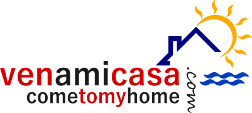ENRICHING, UNIQUE AND AWESOME EXPERIENCES IN MADRID
Since the establishment in 2003 of Venamicasa, the experience acquired over the years has led us to realize those activities that all students and teachers who visit Spain want to know. A selection of authentic cultural treasures some very popular, but most of them are genuine and different allowing the students to enjoy themselves while learning and reflect the daily life and customs that only the natives know.
Cultural activities and workshops Venamicasa offers are a selection of the best and most representative and genuine in the city of Madrid.
| ACTIVITY/MONUMENT | DESCRIPTION |
|---|---|
| The Royal Palace | Built in the 18th century is the official residence of the King of Spain. |
| The Descalzas Reales Monastery | A convent located right in the heart of Madrid. It has been a place of solace, prayer and art since the 16th century, when it was founded by Princess Juana of Austria. |
| The San Fernando Royal Academy of Fine Arts Museum | Located on Alcala Street in the heart of Madrid, currently functions as a museum and gallery. The academy was established by royal decree in 1744. |
| The National Archaeology Museum | It offers an accurate, attractive, interesting and critical interpretation of the objects that belonged to the different cultures which populated the Iberian Peninsula and the Mediterranean region, ranging from Antiquity to more recent periods. |
| The Municipal Museum in Madrid | The history of Madrid and its historical figures through paintings, drawings, sculptures and other objects. |
| La Encarnacion Monastery | Is a convent of the order of Recolet Augustines founded in 1611 by Queen Margarita of Austria-Stiria, the wife of King Philip III |
| The Natural Science Museum | The research departments of the museum are Biodiversity and Evolutionary Biology, Evolutionary Ecology, Paleobiology, Vulcanology and Geology. |
| The Art Walk | Comprising El Prado, Reina Sofia and Thyssen-Bornemisza museums. One of the most exquisite landscapes in the world. |
| The Sorolla Museum | It features work by the Valencian artist Joaquín Sorolla. The building was originally the artist's house, and was converted into a museum after the death of his widow. |
| The Lazaro Galdiano Museum | A private art collection donated by its founder. It displays jewels, paintings, sculptures, furniture and many other objects. |
| The Costume Museum | With collections devoted to fashion and costumes. The museum has over 160,000 pieces and documents. |
| The National Museum of Decorative Arts | A collection of objects formerly used in everyday life that are now considered objets d'art. |
| Royal Tapestry Factory | Established in 1721 by King Philip V. Today its weavers continues to produce works using the same techniques that were used in the 18th century. |
| Palacio del Congreso de los Diputados y el Senado | El Congreso de los Diputados: The history of the Spanish constitution and the Parliament, created by Queen Isabella II in 1850. |
| Museo Casa de la Moneda | The Museo Casa de la Moneda is considered one of the most important museums of its kind worldwide. The richness of its collections and its extensive facilities make the museum a unique place from which to explore the world of money. |
| El Planetario de Madrid | Activities, courses and workshops always focused on greater knowledge of astronomy and science, among schoolchildren and the general public. |
| El Retiro Park | The Jardines del Retiro, is a park of 118 hectares located in Madrid. It is one of the most significant places of Madrid, it houses an artificial lake and Crystal Palace. |
| Museo de America | Brings extensive collections from different cultures in the Americas. |
| Teatro Real | Is a major opera house located in Madrid. Opened in 1850 with a capacity of 1,746 seats. |
| Real Madrid FC Stadium | A visit to Santiago Bernabeu, the Real Madrid FC Stadium. |
EDUCATIVE VISITS & WORKSHOPS IN MADRID
- El Pais. A visit to the production facilities of the newspaper with the largest circulation in Spain.
- Caixa Forum. It offers many educational and exhibition activities suited to school groups.
- Visit to educative centers : Schools, High Schools and the University of Madrid.
- Spanish cooking and gastronomic workshops to learn how to make a nice tapa, the concept and culture of tapas and Spanish cuisine.
- Tapas diner in typical and no touristic restaurants in typical and genuine non tourist restaurants that only the locals know.








